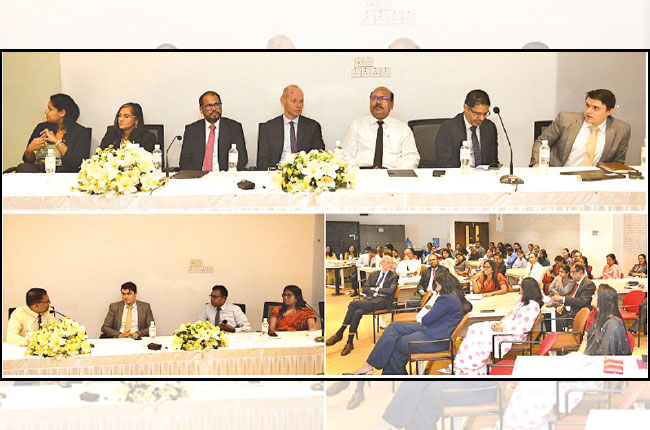By: Staff Writer
July 03, Colombo (LNW): In a strategic move to strengthen its export ecosystem, Sri Lanka has partnered with Australia to harness international best practices in trade promotion, aiming to empower local exporters and improve global market access.
The Sri Lanka Export Development Board (EDB), together with the Australian High Commission, the Australian Trade and Investment Commission (Austrade), and the Department of Foreign Affairs and Trade (DFAT), hosted a high-level seminar titled “Leveraging Australian Best Practices in Export Promotion” on 30 June in Colombo.
Held under the framework of the Australia-Sri Lanka Trade and Investment Framework Arrangement (TIFA), the event brought together policymakers, trade experts, and business leaders from both nations. Discussions centred on how Sri Lanka can adopt Australia’s advanced export development strategies to fuel its own trade-led growth, particularly by supporting small and medium enterprises (SMEs).
Opening the seminar, EDB Chairman/CEO Mangala Wijesinghe stressed the importance of integrating global best practices into Sri Lanka’s export policy. He highlighted the urgent need for trade facilitation reforms and capacity building to increase the competitiveness of Sri Lankan products in international markets. “This seminar comes at a critical time as we seek to accelerate export growth and strengthen the role of SMEs in driving economic recovery,” he said.
K.A. Vimalenthirarajah, Secretary to the Ministry of Trade, Commerce, Food Security and Cooperative Development, reiterated the government’s commitment to an export-oriented development model. He acknowledged the significance of TIFA in deepening Sri Lanka’s international trade partnerships and fostering innovation in export policy.
Australian High Commissioner Paul Stephens reaffirmed Australia’s support for Sri Lanka’s economic aspirations. “Australia is pleased to work alongside Sri Lanka to promote sustainable and inclusive export growth,” he said, noting the long-standing trade relationship between the two nations and the shared interest in economic resilience.
The seminar featured two technical sessions. Sharini McEwen, First Secretary of the Australian High Commission in Colombo, led the first session on market access and trade facilitation. She explained how Australian exporters use Free Trade Agreements (FTAs) to penetrate new markets and overcome non-tariff barriers—strategies that could be replicated by Sri Lankan exporters.
In the second session, Nathan Davis, Austrade Trade Commissioner from New Delhi, outlined Australia’s holistic export promotion model. His presentation covered Austrade’s role in guiding businesses through export processes, providing grants, and connecting them with international buyers.
A standout feature of the event was a panel discussion on Supporting SME Export Growth, where experts from EDB, Department of Commerce, and Austrade explored practical steps to scale Sri Lankan SMEs globally, adapting successful Australian approaches to local contexts.
The interactive Q&A that followed reflected strong engagement from participants, who raised questions on market intelligence, export financing, and digital trade tools.
The seminar marked a significant step in Australia-Sri Lanka economic cooperation, underscoring the value of knowledge-sharing to improve export performance and competitiveness in a challenging global environment.

